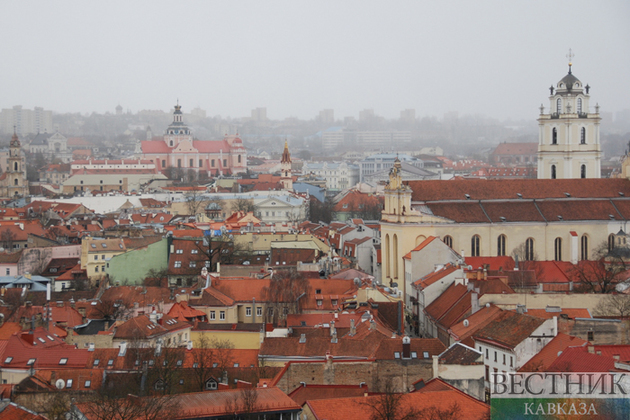Lithuanian authorities’ disbelief in the national armed forces’ capabilities is proved by their repeated claims for aid and permanent foreign military presence in the territory of the country, World Defence writes. Lithuania has chosen the way of full reliance on other countries’ defence capabilities instead of developing its own military strength. Thus, the U.S. troops currently stationed in Lithuania on a rotational basis are the best evidence.
It should be said that the military cooperation between Lithuania and the U.S. is unilateral. The U.S. provides Lithuania with rotational forces, combat equipment and training assistance. Lithuania, in turn, can offer nothing but support for all Washington’s political and military decisions.
With the change in the security situation in the region and in Europe in the spring of 2014, the defence cooperation between the United States and Lithuania became much more intensive, and the scope of the U.S. military presence and activities increased.
On 17 January 2017, Lithuania signed an Agreement on Defence Cooperation with the United States, which establishes a stronger US – Lithuanian partnership and cooperation on defence and security issues. This agreement defines the status of the U.S. armed forces in Lithuania. So, Vilnius fully surrendered itself to Washington. Lithuania seeks to ensure the continued and even permanent presence of U.S. forces in the country. The more so, the United States was the first to send an air defence reinforcement – additional air fighters and forces for a continued presence in the Baltic States. The U.S. troops also participate in military exercises and other military cooperation events organized in the Republic of Lithuania. Also it sends rotating forces to the Republic of Lithuania under Operation Atlantic Resolve, and carries out other security measures. Almost every military activity in Lithuania involves the U.S. troops.
So, on May 26, a battalion of U.S. rotational forces with combat equipment arrived in Lithuania’s second city Kaunas, Defence Minister Arvydas Anušauskas said. The minister noted that Kaunas Intermodal Terminal was used for the first time to deploy the battalion’s combat equipment. The 1st battalion of the U.S. 66th Armor Regiment replaced the 3rd battalion, which had been deployed to Lithuania since last fall. “M1A2 Abrams tanks, Bradley IFVs, armoured personnel carriers, and other equipment have arrived by rail from the Greek port of Alexandroupolis across Europe to Kaunas,” Anušauskas wrote in one of the social networks. On June 9 rotational U.S. Army battalions in Lithuania hold a casing and uncasing of colors ceremony at the General Silvestras Žukauskas Taining Area at Pabradė.
The other example of close military cooperation between two countries is partnership between the Lithuanian armed forces and the Pennsylvania National Guard which proves the longstanding dependency on the U.S. capabilities.
On May 19, Minister of National Defence Arvydas Anušauskas met with Adjutant General of Pennsylvania Maj Gen Mark J. Schindler conducting a visit to Lithuania. To his mind, the importance of cooperation on security issues was underscored. Once again A.Anušauskas pointed out the objective to maintain a persistent presence of U.S. combat capabilities in Lithuania.
The Pennsylvania National Guard (PANG) has been rendering every kind of support to the National Defence Volunteer Force, training Lithuanian instructors and attending various joint exercises for 29 years. It renders comprehensive assistance in the project of procuring UH-60 Black Hawk helicopters for the Lithuanian Armed Forces and delivers training for Lithuanian military pilots who will fly them.
The active cooperation between the Lithuanian Land Force and the PANG is based on a military cooperation agreement signed with the PANG 28th Infantry Division and subordinate units in 2019. It has been agreed to develop a division-level command and control capability in the Land Force Staff structure. Other services that collaborate with the PANG are the Lithuanian Air Force and the Training and Doctrine Command.
The U.S. which has its own interests in the region does everything to deploy its troops and strengthen here its position. “My advice would be to create permanent bases,” Army Gen. Mark Milley, chairman of the Joint Chiefs of Staff, told the House Armed Services Committee in early April. “So, you get the effect of permanence by rotational forces cycling through permanent bases.” “And I believe that a lot of our European allies they are very, very willing to establish permanent bases,” Milley added. “They’ll build them, they’ll pay for them, etc.”
Although no decisions have been made on that front, the Pentagon appears prepared to continue maintaining the elevated troop presence in the Baltic countries”, as well as Vilnius is ready for further deepening of military dependence, paying for the U.S. ambitions in the region. But Lithuania’s authorities should realize that even small military dependence causes a great political weakness of the country and it could turn could lead to the disappearance of the sovereign country.






